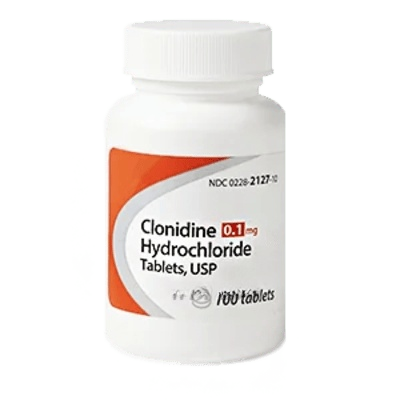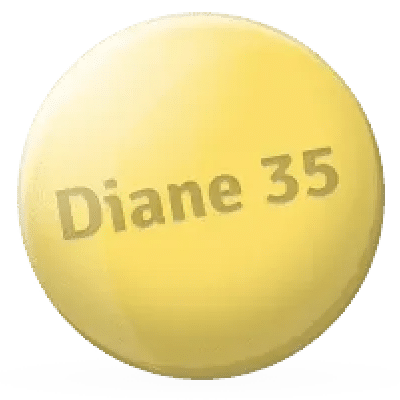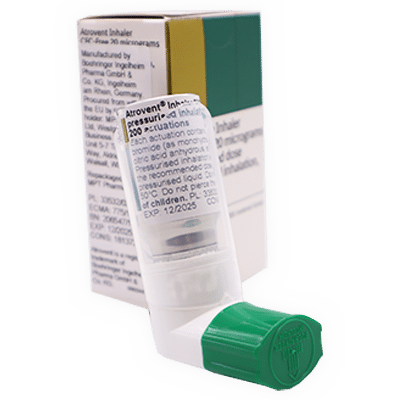I took Clonidine as prescribed by my doctor to lower my blood pressure. The effect was immediate - my blood pressure stabilized after just a few days of regular use. I didnt notice any side effects, except that I sometimes felt a little tired, but it was quite bearable.

Clonidine
- Quality products
- Support 24/7
- Fast delivery
What is it?
Clonidine is a drug used to treat hypertension. It is available as both oral tablets and skin patches. Its main mechanism of action is to stimulate alpha-2-adrenergic receptors in the brain, which reduces sympathetic nervous system activity. This results in decreased peripheral vascular resistance, decreased cardiac output, and decreased blood pressure.
Composition
The composition of Clonidine includes an active substance identical to the name of the drug, which is known for its pronounced effect on the central nervous system and the ability to lower blood pressure. In addition to the main component, the drug may contain various auxiliary substances that increase its stability and effectiveness.
- Clonidine hydrochloride is the main active substance that helps reduce blood pressure and affects brain receptors.
- Microcrystalline cellulose is used to stabilize the shape of tablets and facilitate their production.
- Corn starch is a filler that improves the properties of tablets.
- Silicon dioxide is used as a bulk component that reduces moisture.
- Magnesium stearate is an anti-adhesive agent that prevents tablets from sticking during production.
How to use?
Clonidine should be used in accordance with the instructions and doctors recommendations, as improper use may lead to negative consequences. The dosage and form of release depend on the individual characteristics of the patient and the severity of hypertension. It is important to emphasize that the prescription and dosage adjustment should be carried out only by a doctor.
- The standard dosage of the drug is twice a day, but may vary depending on the bodys response and the patients blood pressure indicators.
- The patches are applied once a week, attaching them to clean and dry skin in the shoulder or chest area.
- When replacing the patch, it is recommended to choose a new area for attachment to avoid skin irritation.
How does it work?
The mechanism of action of Clonidine is based on its ability to affect the central nervous system, especially alpha-2-adrenergic receptors. Due to this, the activity of the sympathetic nervous system decreases, which leads to a decrease in blood pressure. This action helps to reduce the load on the heart and blood vessels, reducing the risk of cardiovascular complications.
In addition to the main effect on blood pressure, Clonidine shows its potential in eliminating the symptoms of drug and alcohol withdrawal. Due to its sedative effect, it helps to alleviate the manifestations of anxiety and incomplete sleep. It is also sometimes prescribed for the treatment of attention deficit syndrome in children and adults.
Indications
Indications for the use of Clonidine include a wide range of conditions and diseases that require a decrease in blood pressure or an effect on the central nervous system. This makes the drug very versatile in its use, but it is also necessary to strictly follow the doctors instructions.
- Hypertension of varying degrees is the main indication for the appointment of Clonidine.
- Drug or alcohol withdrawal syndrome - helps reduce symptoms and facilitates the process of withdrawal.
- Treatment of migraines, in combination with other drugs.
- Helps reduce the manifestations of attention deficit syndrome.
Contraindications
Contraindications to the drug exist due to its specific effect on the central nervous system and vascular system. The decision to prescribe should be based on a full assessment of the patients condition and consideration of all possible risks. Contraindications cannot be ignored, as this can lead to serious consequences.
- Hypersensitivity to clonidine or other components of the composition.
- Sick sinus syndrome and severe bradycardia.
- Atrioventricular block II and III degrees.
- Caution is required when prescribing to patients with myocardial infarction and depression.
Side effects
Side effects of Clonidine can vary in intensity and nature, so it is important to closely monitor the condition and consult a doctor at the first signs of deterioration in health. Despite the general effectiveness, like any drug, clonidine can cause unwanted reactions of the body.
- Allergic reactions, such as hives or difficulty breathing.
- Changes in heart rhythm, including both rapid and slow heartbeat.
- Sharp increase in swelling and weight gain.
- Disturbances in consciousness, possible hallucinations and confusion.
- Problems with urination, decreased frequency of urges.
Frequently asked questions
Clonidine Reviews and Experiences
I have been using Clonidine for about a month now and have noticed a reduction in the frequency of migraines, which is very important to me. Of all the medications I have tried, this has proven to be the most effective. I have found it to be very useful and unique in its action, which has greatly improved my quality of life.
Clonidine was prescribed to me after a heart attack. Initially I was a little worried about its effects, but over time I appreciated its benefits. My blood pressure has returned to normal, I feel calm and stable, although sometimes there is a slight dry mouth.









